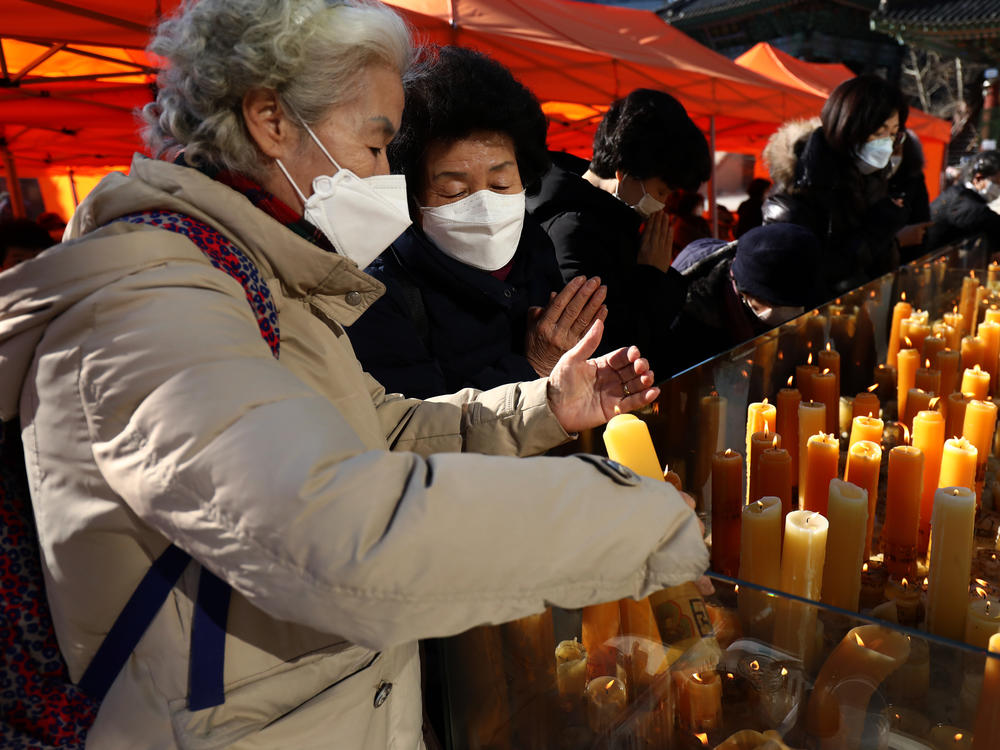Section Branding
Header Content
South Korea Considers Tighter Coronavirus Restrictions As Cases Spike
Primary Content
South Korea's capital recorded its highest-ever number of new coronavirus cases, 291, on Thursday, while nationwide there were 629 cases — the largest total in nine months. Amid criticism of the government's recent handling of the pandemic, it is considering tightening public health restrictions.
That criticism — that the government has been too timid in tacking the current third-wave of infections — follows international praise for South Korea's aggressive response to the initial outbreak in February.
"We have no room left for retreat. We will stop Seoul after 9 p.m., starting tomorrow," Seoul's acting Mayor Seo Jeong-hyup told reporters.
For the next two weeks, the capital's public transportation will be reduced by 30% after 9 p.m. Restaurants, cafes and gyms are already required to close after 9 p.m., and starting from Saturday, supermarkets, department stores and hair salons will be, too. Middle and high school classes will move online.
Officials appear to be conceding that two recent increases in the country's virus alert level have been insufficient.
"We cautiously predict that the current outbreak will not be easily suppressed," Yoon Tae-ho, the Health Ministry's public health policy director, told a briefing Friday. "It is not centered on a certain occasion or group but is rather emerging at various everyday locations."
Last week, government officials insisted that tightening restrictions too hastily could have damaging economic effects on citizens and that public compliance was more important than social distancing measures themselves.
Now, it is mulling whether to raise restrictions over the weekend to the second highest level in a five-tier system.
"The basis of South Korea's response has been preemptive, fast decisions for strong measures," Eom Joong Sik, an infectious diseases expert at Gachon University in Incheon, said in a phone interview on Monday. "If we forsake this principle for economic reasons, we won't be able to control infections and may face an economic collapse as well.
Eom points out that, based on current new case levels, restrictions should already be at the second-highest level, but the government, he argues, has balked at following its own rules.
"If the government doesn't stick to standards and principles, how can it persuade the citizens to follow guidelines and restrictions?" he asks.
South Korea has garnered international praise partly because of the perception that the government has deferred to health experts in formulating the country's response to the pandemic.
The government may now be giving more weight to economic considerations. But Eom Joong Sik says he doubts that acting decisively to stop the virus's spread costs more than acting cautiously.
Copyright 2020 NPR. To see more, visit https://www.npr.org.

